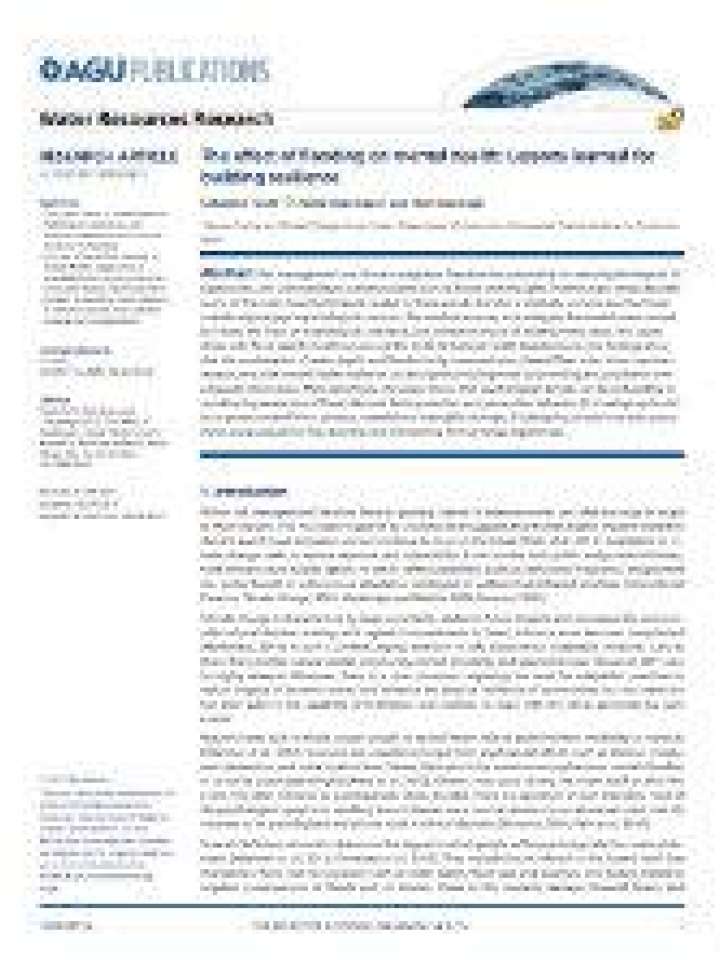The effect of flooding on mental health: Lessons learned for building resilience
Posttraumatic stress disorder is one of the most important impacts related to extreme events such as floods and droughts, but also a relatively under-researched topic outside original psychopathological contexts.
This article shares research conducted to investigate the mental stress caused by floods. It focuses on hydrological, individual, and collective drivers of posttraumatic stress. It assesses stress with flood-specific health scores and the GHQ-12 General Health Questionnaire. The findings show that the combination of water depth and flood velocity measured via a Hazard Class Index is an important stressor; and that mental health resilience can be significantly improved by providing the population with adequate information. More specifically, the paper shows that psychological distress can be reduced by (i) coordinating awareness of flood risks and flood protection and prevention behavior; (ii) developing the ability to protect oneself from physical, material and intangible damage; (iii) designing simple insurance procedures and protocols for fast recovery; and (iv) learning from previous experiences.
Explore further
